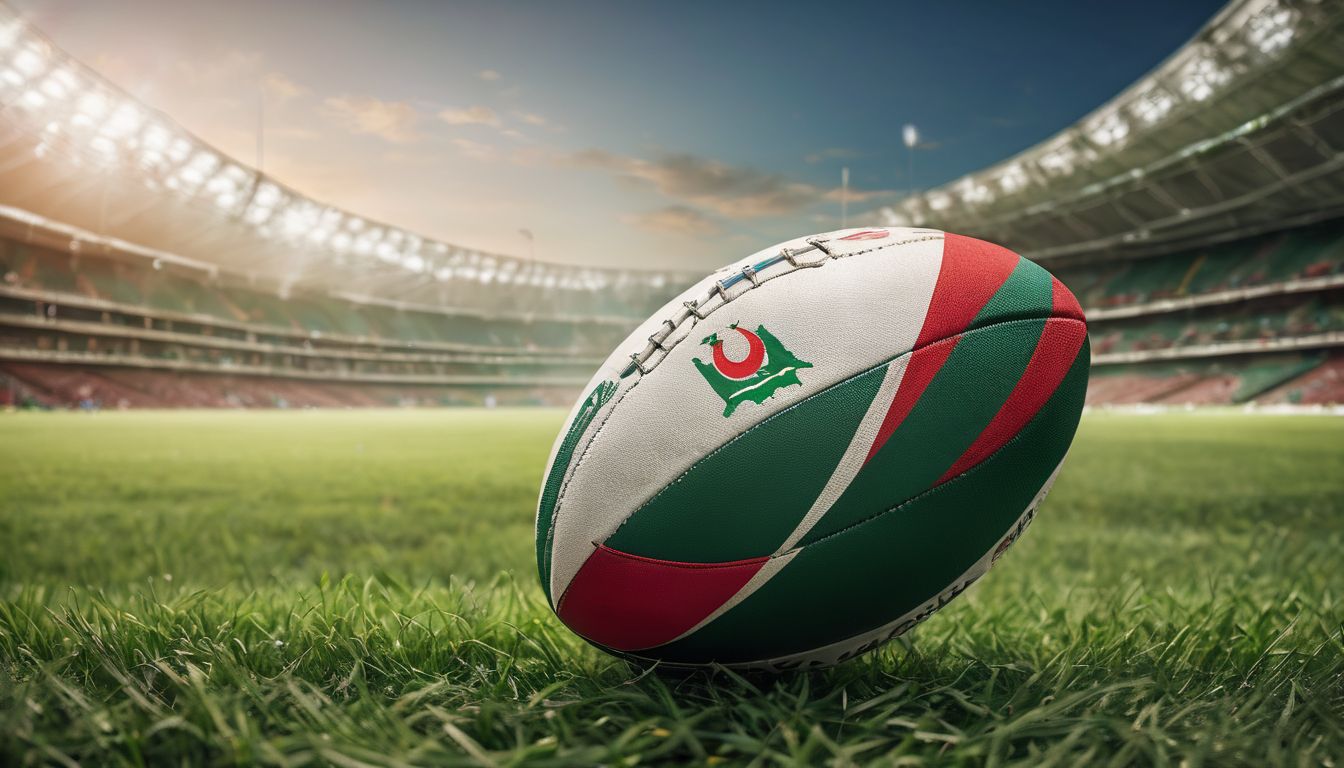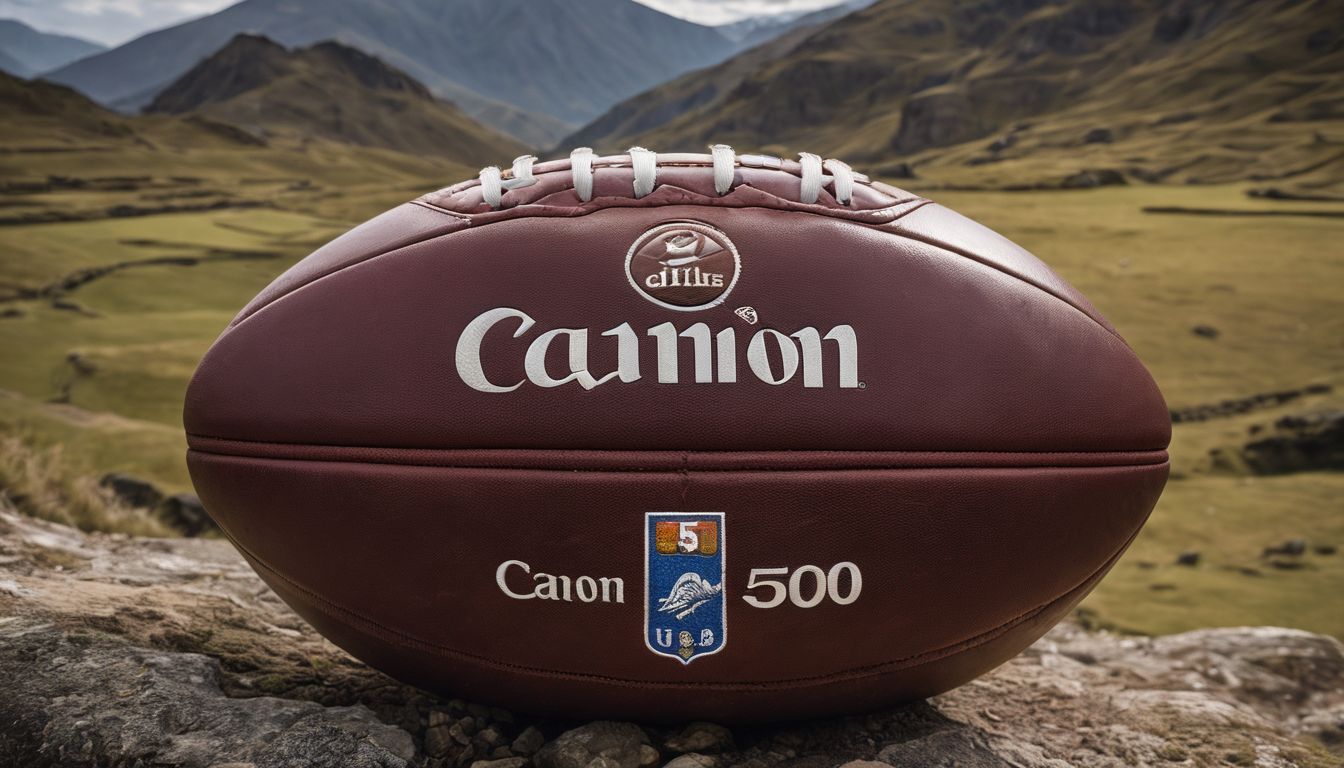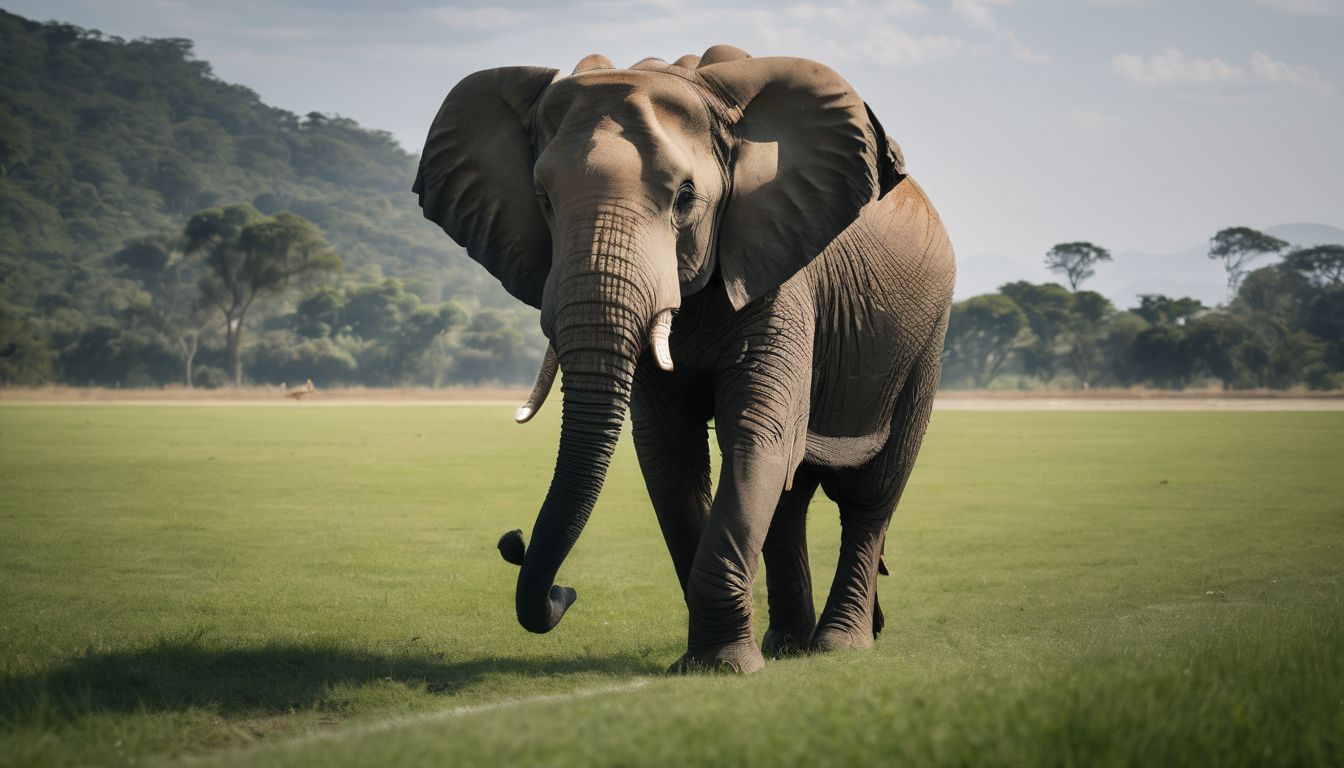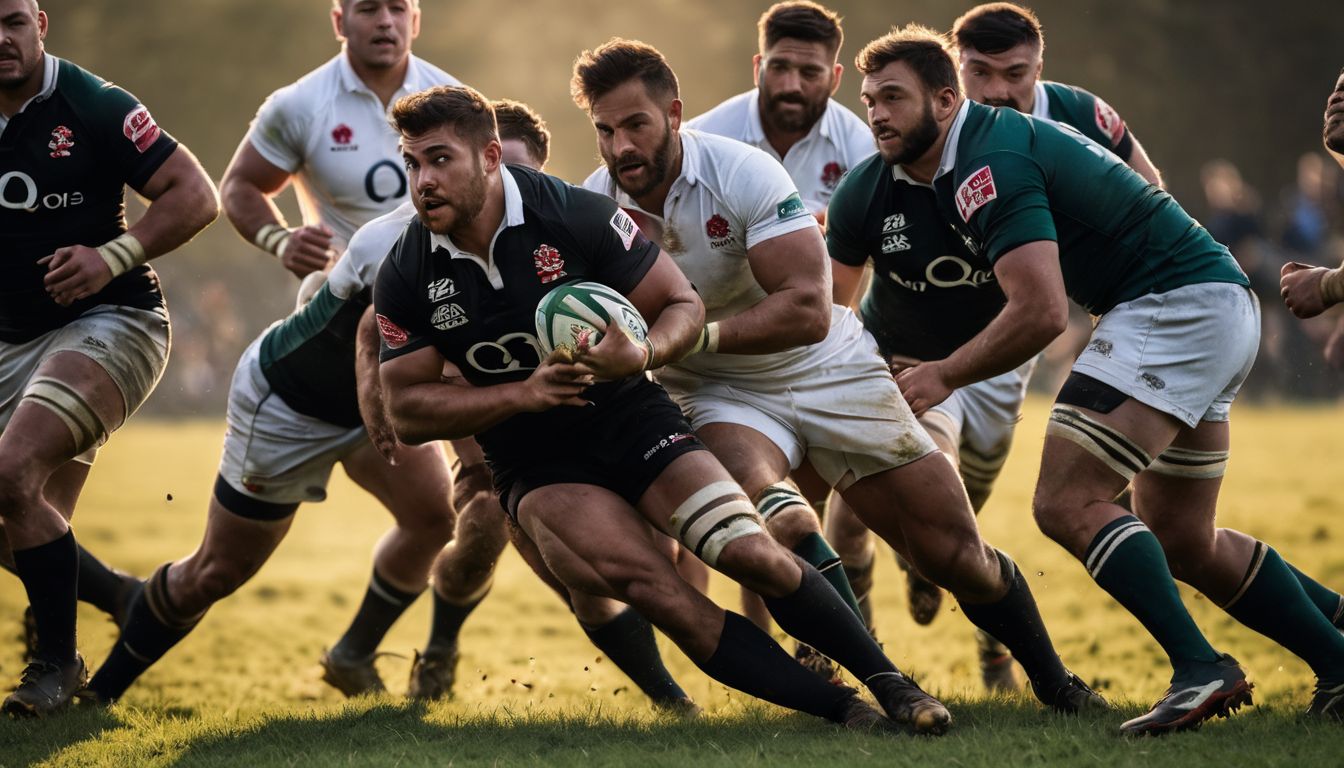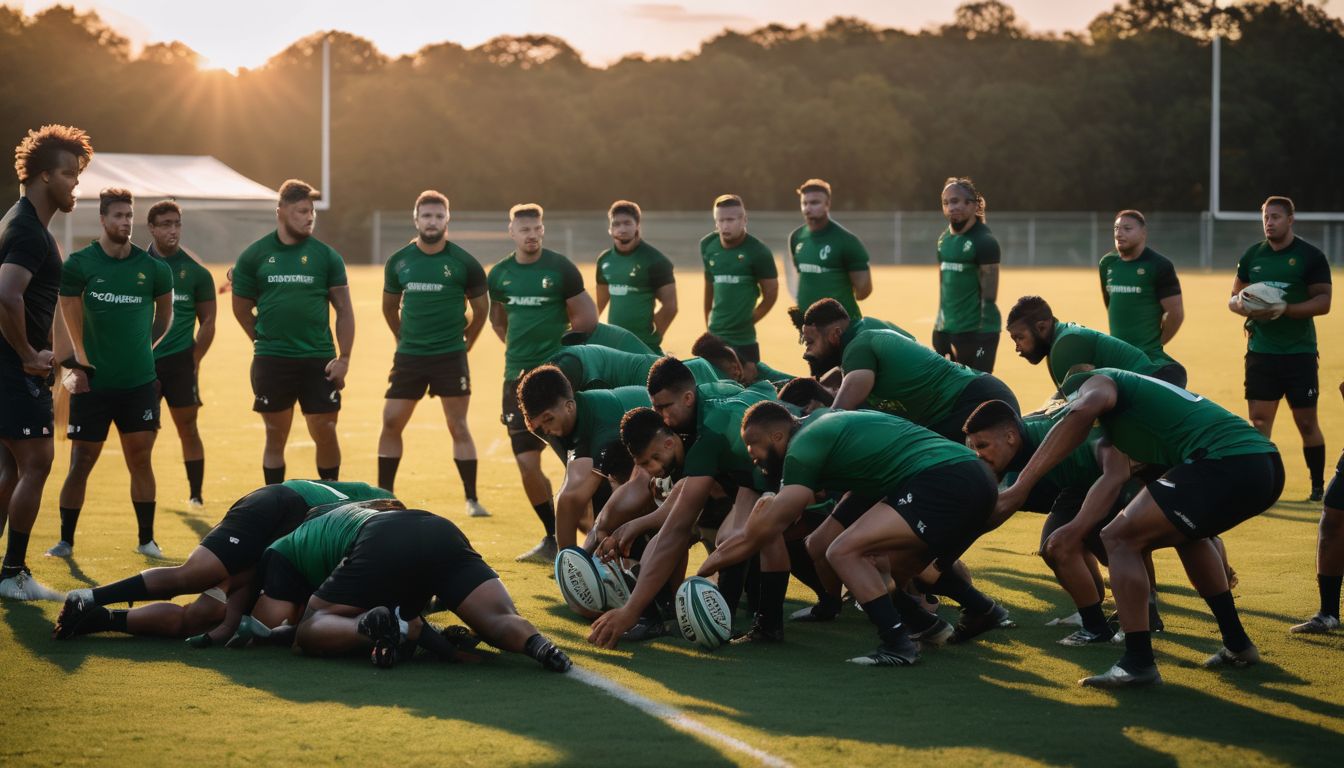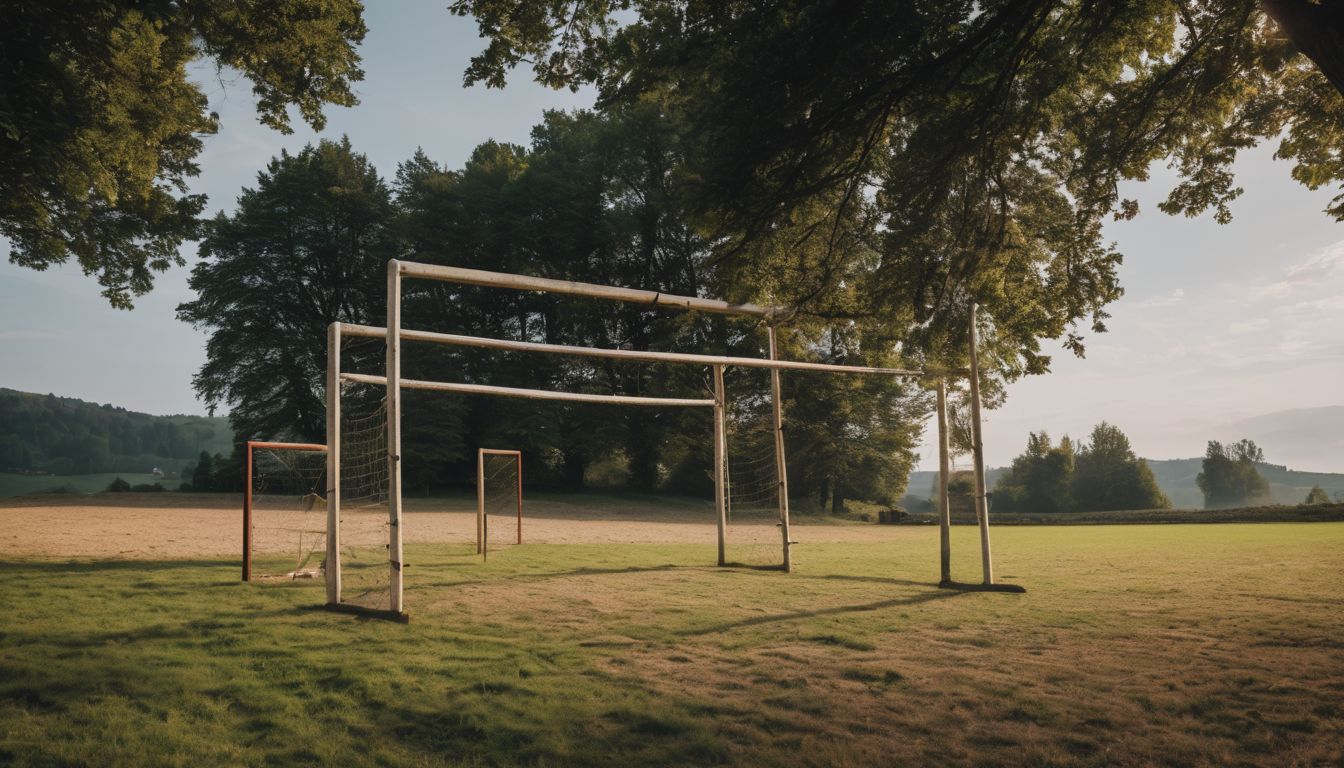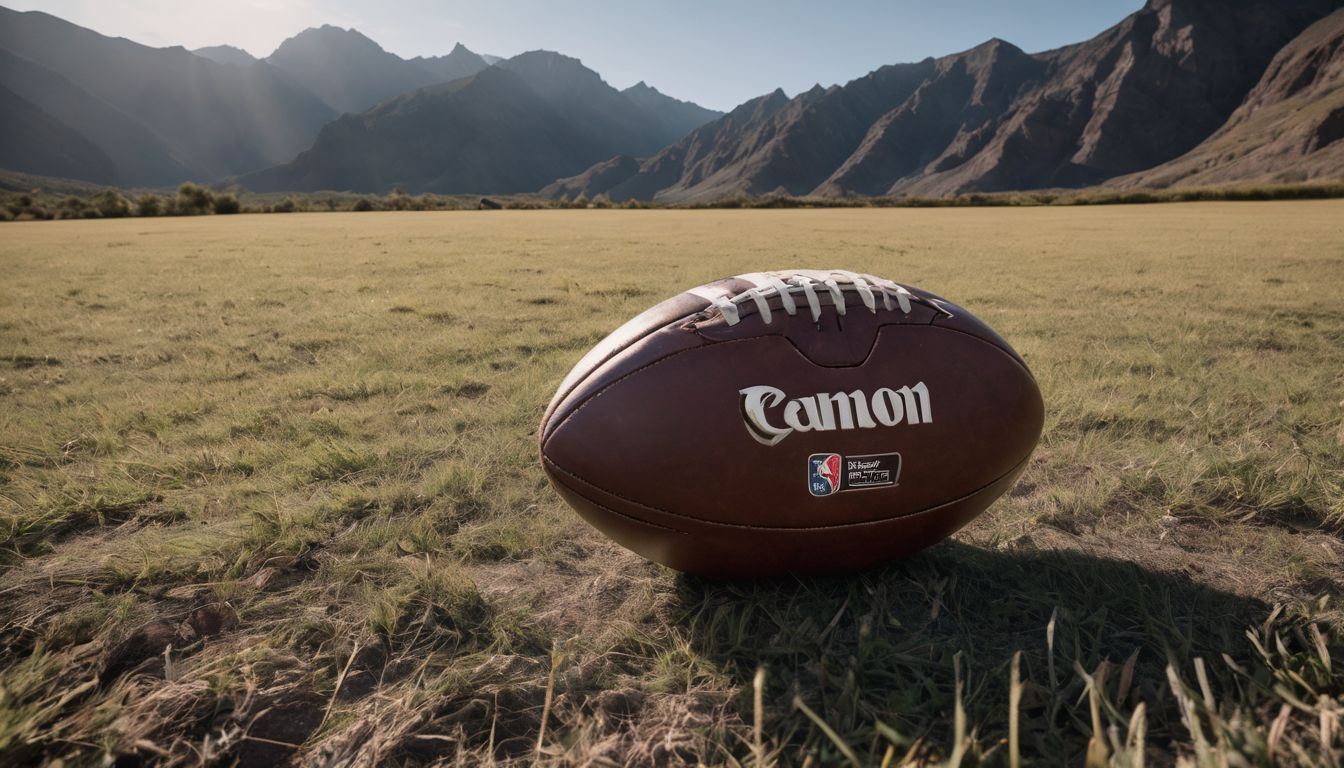Have you ever wondered about the roar rising from South American rugby fields? Uruguay might not be the first name on everyone’s lips in world rugby, but their national team, Los Teros, are making impressive strides.
This blog will dive into the underdog story of Uruguayan Rugby – from its humble beginnings to international acclaim. Get ready to discover how a small nation is shaking up the rugby scene!
Key Takeaways
- Los Teros, Uruguay’s national rugby team, have been making impressive progress on the international stage and are known for their resilience and strength.
- The U20 team, Los Teritos, serves as a key development ground for young talent in Uruguayan rugby, with many success stories of players who rose to join the senior ranks.
- Notable Uruguayan players include Diego Ormaechea and Rodrigo Capó Ortega among others; influential coaches like Pablo Lemoine have also contributed significantly to the sport.
- With a focus on future goals and aspirations, Uruguay aims to climb higher in world rankings by continuing their success in competitions like the Rugby World Cup 2023.
- The upcoming matches and tournaments featuring Los Teros are highly anticipated events that will showcase Uruguay’s growing prowess in rugby.
History of Uruguayan Rugby
Uruguayan rugby has a rich history, dating back to the early beginnings of the sport in the country. Over the years, it has seen significant growth and development, with notable participation in World Cups.
Early beginnings
Rugby’s journey in Uruguay began with seeds planted by British schools and clubs, fostering a love for the game among young players. Despite soccer’s dominant presence, rugby union carved out its own niche early on.
By 1981, dedications to training and passion for the sport led to Los Teros clinching their first significant title victory. This success marked a turning point, drawing attention to Uruguay as a growing force in South American rugby.
The national team went from strength to strength after this initial triumph. They earned recognition on international platforms, setting the stage for future glories. The collective efforts of players and coaches laid down robust foundations that would one day see Los Teros soar high in competitions around the globe.
Growth and development
Transitioning from the early beginnings of rugby in Uruguay, the growth and development of the sport have been remarkable. Despite being overshadowed by soccer, Uruguayan rugby has steadily gained momentum over the years and has made a mark on the international stage.
With dedicated efforts towards nurturing talent and participation in global tournaments, Uruguay’s national team, Los Teros, has become a force to be reckoned with in South American rugby.
The growth and development of rugby in Uruguay have seen significant milestones, such as their commendable performance against reputable teams like Fiji. This progress reflects not only the dedication of players but also the vision and support provided by the Uruguayan Rugby Union.
Participation in World Cups
After experiencing growth and development, the Uruguay national rugby union team has participated in several Rugby World Cups. Here are some key points about their participation:
- Los Teros first competed in the Rugby World Cup in 1999, marking their debut on the global stage of international rugby.
- Since then, the team has been a consistent presence in subsequent tournaments, showcasing their passion and determination to succeed at the highest level of competition.
- The Uruguay national rugby team‘s participation in the World Cup has been instrumental in elevating their profile and gaining valuable experience against top-tier teams from around the world.
- Their performance in the Rugby World Cup 2023 will be closely followed by fans, as they aim to continue making a mark on the international rugby scene.
- With a rich history and a dedicated fan base, Los Teros’ journey through various World Cups has been an inspiring testament to their resilience and commitment to excellence on the global stage.
Los Teros: The National Rugby Team of Uruguay
The Los Teros, the national rugby team of Uruguay, have made significant strides in the sport on a global stage. From their nickname origins to their impressive performances and achievements, this team has become a force to be reckoned with in South American rugby.
Nickname origins
The nickname “Los Teros” of the Uruguay national rugby union team has an interesting origin. It comes from a South American bird, the Southern Lapwing, which is commonly found in Uruguay and resembles the black and white stripes on the team’s jerseys.
The unique choice of this nickname resonates with Uruguayan culture and heritage, reflecting the country’s distinctive wildlife.
Uruguayans take pride in their national rugby team being referred to as “Los Teros,” as it symbolises their connection to nature and local identity. This name also embodies the spirit of resilience and strength that characterises both the bird and the players on the field.
Team performance and achievements
Los Teros are a prominent force in international rugby, boasting impressive achievements and a strong performance history. They have participated in multiple Rugby World Cups, showcasing their skill on the global stage.
- Los Teros secured a historic victory against the Flying Fijians with a thrilling 30-27 win in Kamaishi, Japan during the 2023 Rugby World Cup.
- Despite Uruguay’s soccer dominance, Los Teros hold the #2 position among South American rugby teams, underlining their consistent success in the sport.
- The team gained widespread recognition by capturing the title in 1981, firmly establishing their presence in international rugby circles.
- Known as Los Teros by their passionate fans, Uruguay’s national rugby union team has earned a reputation as one of the premier sides in the Americas.
- With an upcoming schedule and exciting players to watch, Los Teros’ participation in the Rugby World Cup 2023 promises thrilling matches and memorable performances for fans to look forward to.
The Path to the Top: Los Teritos
The U20 team, known as Los Teritos, plays a crucial role in developing future national players. Many successful Uruguayan rugby players have risen through the ranks of this youth team to represent their country on an international stage.
Role of U20 team in developing future national players
The U20 team plays a crucial role in developing future national players for the Uruguay national rugby union team. As part of the pathway for South American rugby teams, such as Los Teritos and Cóndores U20, this development stage nurtures young talent and hones their skills to prepare them for international competition.
Many successful players have risen through the ranks of the U20 system to become key contributors to the senior national team, showcasing the effectiveness of this developmental process.
Los Teros has seen immense success with players who were developed through the U20 system, highlighting its significance in shaping the future of Uruguayan rugby. This vital pathway continues to serve as a breeding ground for talented individuals who go on to represent their nation at an elite level.
Success stories of players who rose through the ranks
- Diego Magno: A product of the U20 system, Magno’s journey saw him progress from the youth team to become a key player for Los Teros.
- Andrés Vilaseca: Starting out in the developmental programme, Vilaseca rose through the ranks to become a prominent figure in Uruguay’s national team.
- Juan Manuel Cat: Cat’s rise through the ranks began in his U20 days, where he honed his skills before making a significant impact in senior-level matches.
- Juan Diego Ormaechea: Having been part of the U20 setup, Ormaechea’s progression saw him emerge as a leading figure in Los Teros’ success on the international stage.
- Gonzalo Soto: Soto’s journey from the U20 setup to becoming an integral part of Los Teros showcases the effectiveness of Uruguay’s player development pathway.
- Santiago Arata: After cutting his teeth in U20 competitions, Arata made a seamless transition to represent Uruguay at the highest level with skill and determination.
- Felipe Berchesi: Berchesi’s path from U20 standout to a pivotal player for Los Teros highlights the talent that has been nurtured within Uruguay’s youth rugby programmes.
Notable Players and Coaches
Explore the top players in the history of Uruguayan Rugby and learn about influential coaches and their contributions to the sport. From legendary names to rising stars, discover the impact these individuals have had on shaping the success of rugby in Uruguay.
Top players in the history of Uruguayan Rugby
Uruguayan rugby has been graced by exceptional talent over the years, with several players leaving an indelible mark on the sport. Here are some of the top players in the history of Uruguayan Rugby:
- Diego Ormaechea: Recognised as one of Uruguay’s greatest rugby players, Ormaechea’s career highlights include representing Uruguay in three Rugby World Cups.
- Rodrigo Capó Ortega: With a prolific career in European rugby, Capó Ortega is renowned for his leadership skills and dominance in the forward pack.
- Juan Menchaca: A versatile player known for his speed and agility, Menchaca played a pivotal role in Uruguay’s rise in international rugby.
- Pablo Lemoine: As both a player and coach, Lemoine has made significant contributions to Uruguayan rugby, earning respect for his dedication to the sport.
- Andrés Romagnoli: A skilful fly-half considered one of Uruguay’s finest playmakers, Romagnoli’s precision and vision on the field set him apart.
- Agustín Ormaechea: Following in his father’s footsteps, Agustín Ormaechea has established himself as a formidable scrum-half with exceptional game management skills.
- Alejandro Nieto: Known for his physicality and tenacity, Nieto’s impact on the pitch earned him accolades as one of Uruguay’s most influential forwards.
- Diego Magno: A talented lock forward whose commanding presence and work rate have been instrumental in Uruguay’s successes on the international stage.
- Federico Méndez: This experienced prop forward has been a key figure in Uruguay’s front row, bringing strength and stability to the scrum throughout his career.
- Leandro Leivas: A dynamic winger capable of creating scoring opportunities, Leivas’ speed and elusiveness have made him a vital asset to Uruguayan rugby.
Influential coaches and their contributions
- Pablo Lemoine: Known for his leadership and tactical expertise, Lemoine guided Los Teros to their historic victory over Fiji in 2023.
- Esteban Meneses: His coaching prowess has been instrumental in shaping the team’s strategic approach and fostering a winning mindset.
- Gregorio Perez: Renowned for his focus on player development, Perez has played a pivotal role in nurturing young talent within the national team setup.
- Alejo Duran: With a keen eye for talent identification, Duran has contributed to building a competitive squad with depth and resilience.
- Luis Pedro Achard: As a mentor and motivator, Achard has instilled a strong sense of camaraderie and unity within the team.
Rugby in Uruguay Today
Uruguay’s rugby scene is thriving, with a growing interest in the sport and an increasing number of young players getting involved. The national team continues to make strides on the international stage, and there are high hopes for their future success.
Current state of the sport in the country
Uruguay’s rugby scene is currently thriving, with the national team, Los Teros, making significant strides in international competitions. The country has firmly established itself as the second-ranked rugby team in South America, despite its soccer dominance.
With a passionate fan base and a growing pool of talented players, Uruguay continues to elevate its presence in the global rugby community.
Looking ahead, Los Teros are gearing up for an exciting journey as they prepare for their upcoming matches and tournaments. Their recent victory against the Flying Fijians in Japan serves as a testament to their determination and skill.
Future goals and aspirations for the national team
The national team aims to secure a higher standing in the South American rugby rankings and continue making significant strides in international competitions. With an eye on Rugby World Cup 2023, Los Teros are determined to build on past successes and make a lasting impact on the global stage.
Their ambition is to solidify their position as one of the top teams in the Americas, maintaining their competitive edge with a strong focus on player development and strategic gameplay.
Looking ahead, Uruguay’s national team is committed to fostering grassroots rugby initiatives and expanding youth training programs across the country. As they gear up for upcoming matches and tournaments, they are steadfastly working towards elevating their performance standards while showcasing their distinctive style of play that has earned them admiration from fans worldwide.
Upcoming matches and tournaments to watch out for
- The Americas Rugby Championship: Witness Los Teros face off against other top teams from the Americas in this thrilling annual tournament.
- Rugby World Cup 2023: Watch Uruguay compete on the world stage as they take on formidable opponents in pursuit of victory and glory.
- South American Rugby Championship: Get ready to support Los Teros as they battle it out with South American rivals for regional supremacy.
- Friendly Internationals: Keep an eye out for friendly matches where Uruguay showcases their skills and strategies against international competitors.
- Qualification Matches: Follow Los Teros as they strive to secure a spot in prestigious tournaments through intense qualification battles.
Conclusion
Rugby in Uruguay has a rich history, with Los Teros carving their place in international rugby. The national team’s impressive performances and achievements have solidified their status as a force to be reckoned with.
As Uruguay continues to nurture young talent through the Los Teritos and strive for greater success, the future looks promising for rugby in this South American nation. Keep an eye on upcoming matches and tournaments to witness the Teros’ continued rise in the world of rugby.
FAQs
1. What is rugby union in Uruguay?
Rugby union in Uruguay is a popular sport where the Uruguayan rugby team, known as the Teros, competes at both national and international levels.
2. How does the Uruguay national team rank in South American rugby?
The Uruguay national team rugby ranking varies, but they’re recognised for their skills and have been gaining ground against bigger teams in South America.
3. Can I watch the Teros play in international competitions?
Yes, you can watch the Teros representing Rugby in Uruguay on various occasions as they regularly participate in regional tournaments and sometimes qualify for global events.
4. Is Rugby growing more popular across South America thanks to teams like Uruguay’s?
Definitely! The success of teams like the Teros has sparked increased interest and participation in Rugby throughout South America.




